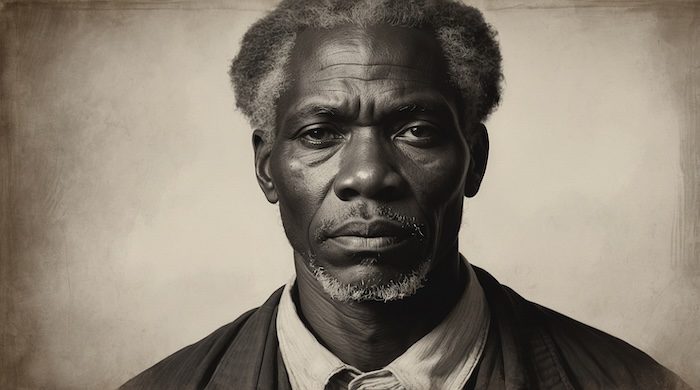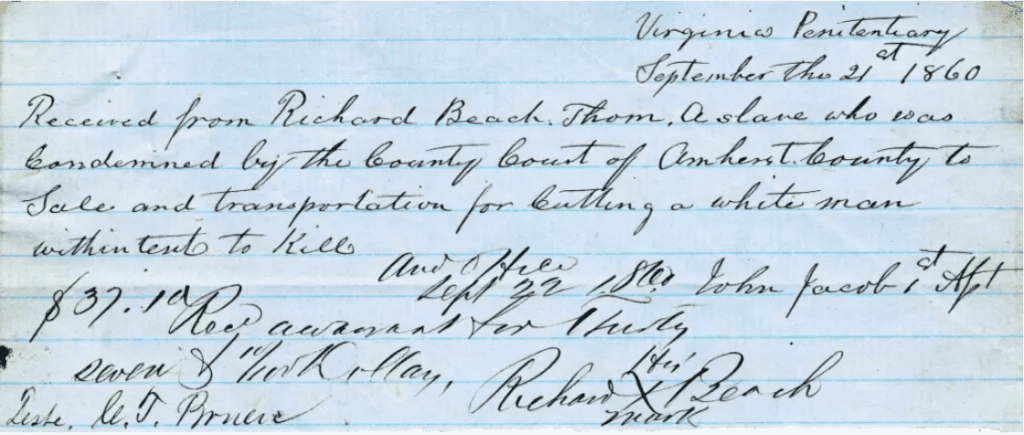
Public Claims & Free Blacks, 1781–1865

The Public Claims & Free Blacks, 1781–1865 records document the lives, legal statuses, and economic activities of free African Americans during the antebellum and Civil War eras in the United States. These records include freedom papers, land ownership deeds, military service claims, apprenticeship contracts, and court petitions that reflect both the resilience and contributions of free Black individuals.
They also provide vital genealogical evidence, offering researchers insights into family connections, property rights, legal disputes, and military participation. These materials reveal how free African Americans contributed to their communities despite systemic restrictions and racial hostility.

Legal Restrictions and Social Realities
During the antebellum and Civil War years, legislatures such as the Virginia General Assembly passed increasingly harsh measures to reinforce white control and suppress fears of rebellion. Free African Americans often faced heavy taxes that singled them out, along with restrictions on property ownership and movement. Courts also wielded the power to impose executions, deportations, or even forced sale into slavery for those accused of rebellion or violent crimes.
Records that survive from this era shed light on how African Americans — both free and enslaved — navigated these realities. They include tax lists that tracked free Blacks as a separate class, runaway slave reports that often ended in state-ordered sales if no owner came forward, and legal files documenting executions, deportations, or condemnations. Some individuals even filed military and labor claims, seeking compensation for wartime service or state-requisitioned work.
Punishment Practices Documented
- ➡️ Hanging – Common punishment for rebellion or violent acts.
- ➡️ Burning at the Stake – Reserved for extreme cases of revolt.
- ➡️ Firing Squad – Applied to organized, military-style rebellions.
- ➡️ Dismemberment – Symbolic punishment intended to instill fear.
- ➡️ Indentured Servitude / Labor Sentences – In the North, labor contracts often replaced execution.

Together, these records not only expose the depth of racial control and systemic oppression but also provide today’s researchers with vital documentation of free Blacks’ struggles, resilience, and interaction with the legal system.
Sample Document
Virginia Penitentiary,
September 21, 1860
Received from Richard Beach Thom, A slave who was
condemned by the County Court of Amherst County to
Sale and transportation for cutting a white man
with intent to kill
And Office Sept 22 1860 John Jacob, Asst
$37.10 Rec’d a warrant for Thirty
seven & 10/100 Dollars
Test. R. F. Brewer
His X mark Richard Beach

Key Notes:
- ➡️ Condemnation and Punishment – Reveals how enslaved individuals accused of crimes were handled by courts.
- ➡️ Sale and Transportation – Illustrates punishment by forced relocation and resale.
- ➡️ Financial Transaction – Shows the monetary system attached to enslaved lives and punishments.
States with Deportation and Restrictive Laws
| States | Key Policies and Laws |
| Northern | |
| Ohio | Black Laws (1804–1807); $500 bond required; forced removals for those unable to comply. |
| Indiana | 1851 Constitution banned Black entry; deportation enforced for existing residents. |
| Illinois | Black Codes (1819–1865); banned immigration; fines and indentured servitude enforced. |
| Connecticut | Gradual emancipation (1784); expelled Blacks labeled as vagrants. |
| New York | Manumission restrictions (1799–1827); enforced vagrancy laws to remove undocumented individuals. |
| Pennsylvania | Gradual Abolition Act (1780); required freedom certificates and expelled destitute Blacks. |
| Rhode Island | Black Codes (1700s–1800s); restricted property rights and expelled Blacks labeled as public burdens. |
| New Jersey | Gradual emancipation (1804); indentured servitude restrictions and deportations for lack of freedom papers. |
| Southern | |
| Virginia | Harsh taxes; execution or deportation for rebellious acts; runaway slaves sold if owners not found. |
| Maryland | Forced removals for undesirable Blacks; harsh labor penalties for undocumented residents. |
| North Carolina | Authorized deportations and executions for rebellious acts or aiding runaways. |
| South Carolina | Enforced public hangings and deportations for insurrection or defying slave codes. |
| Georgia | Banned Black migration; deported free Blacks or sold runaways into slavery. |
| Alabama | Enforced laws restricting free Blacks' residency; deportations and executions for violent acts. |
| Mississippi | Harsh labor contracts and property seizures for undocumented Blacks; deportations and executions. |
| Louisiana | Strict registration laws; deportations of free Blacks; public executions for revolts or violent offenses. |
| Tennessee | Property restrictions and forced removals for undocumented free Blacks; harsh penalties for aiding runaways. |
